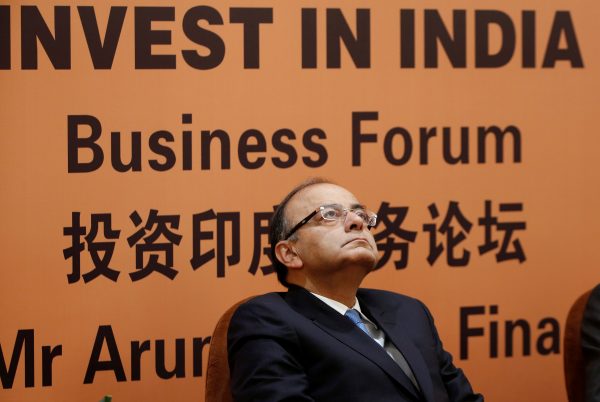A prime example of this is the gradual emergence of the ‘Indo-Pacific’ as an ideological construct that seeks to define a regional strategic framework encompassing both the Pacific and Indian Oceans. Despite growing international reference to the importance of a stable Indo-Pacific, it remains a nascent concept that is yet to provide any clarity on the geopolitical realities of a reemerging Asia-Pacific.
In its broad vision, the concept encompasses the military, economic, and strategic interests of regional stakeholders and their complicated and interdependent relationships. These interests include the United States’ ambitious ‘pivot’ towards Asia, China’s advance westwards through initiatives such as the ‘Maritime Silk Road’, and India’s vigour to ‘Act East’ rather than simply ‘Look East’.
In this theatre of competing national interests it is India that holds an integral role in creating a conducive regional building process. With Prime Minister Narendra Modi’s push for economic reforms and proactive international diplomacy since 2014, India stands as the only partner equal to China and the United States. India is a vital part of the US-led balancing coalition in the Indo-Pacific and China cannot afford to have a United States tilted towards India in the centre of the Indian Ocean. It is unsurprising that, in wanting to construct a regional space as they conceive it, the United States and China have simultaneously stepped up their bilateral engagement with India.
Chinese investments in India grew six-fold to US$870 million between 2014 and 2015 and Chinese State Councillor Yang Jiechi has travelled to India three times in the past two months. But India continues to anchor its foreign policy to the principle of ‘strategic autonomy’ given its anxieties about the region morphing into a stage for regional bifurcation along United States and Chinese interests.
In his address to the Indian Parliament in 2007, Japanese Prime Minister Shinzo Abe proclaimed that ‘the Pacific and Indian Oceans are now bringing about a dynamic coupling as seas of freedom and of prosperity’. The emerging strategic and economic importance of the region with the advent of India and China has accelerated the inevitable rise of the Indo-Pacific as both a concept and a reality. It is a geopolitical construct whose time has come, regardless of whose interests come to eventually dictate the form it takes.
Yet China remains the overwhelming power in the Indo-Pacific — a reality emphasised by former Australian diplomat and foreign policy expert Rory Medcalf. Given China’s expanding economic, political and strategic influence across the Indian Ocean, the idea of Indo-Pacific regional institutions without China will stoke regional tensions and weaken the credibility of any legitimate regional framework that seeks to replace existing institutional structures or competing conceptions of the Asia-Pacific region.
Geopolitical constructs often provide an impetus for the formation of collective security organisations and economic groupings. But in the case of the Indo-Pacific it is difficult to assess whether the concept will indeed morph into a politically legitimate regional framework for collaboration and cooperation.
If it does, what would it look like? A popular idea is that the space will provide a stage for the creation of a US military alliance system in the region. This speculation is derived from the opinion that China’s increasing strategic influence across the Indian Ocean demands a regional counterbalance. Increasing defence and naval cooperation between the United States, Japan, Australia and India attests to this.
The transition of the Indo-Pacific from being a purely ideological construct to successfully shaping geopolitical practice will depend on how India sees its own place in the region and the extent to which it regards the Indo-Pacific as crucial for its own progress and prosperity. India should use this rare opportunity to proactively construct a space that focuses on increasing mutually beneficial economic engagement rather than drifting into anachronistic Cold War-era thinking in which security challenges tend to dictate regional order. Whether India likes it or not, the ball is in its court.
Soyen Park, a recent PhD graduate of Korea University, currently resides in New Delhi, India and carries out independent research on the Indian economy.


Another article trying to talk up India. Whether ‘Look East’, ‘Act East’, cultural linkage to this or that, old timers of India watching have seen it all. The problem of India is not that it is not strategic enough, the problem is that it thinks too big, too strategic, trying to play the big league at the expense of the basic needs of the country, such as clean water, functional electricity grid, toilets, education and infrastructure.